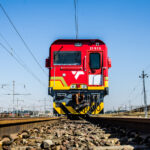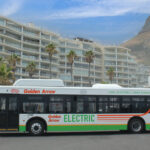National irrationality
National irrationality
South Africa is experiencing an economic crisis of devastating proportions, with little evidence of rational analysis or corrective action by the ruling authorities, warns NICK PORÉE.
The continual appeals and recommendations by economists, industry, social activists, and opposition parties are being rejected in defence of an outdated and dystopian ideological model. Economic policy ignores the statistical evidence of the extent of the costs, decay, and collapse of almost all government services, including municipal, railway, ports, security, and health.
As the process of rational reasoning, “rationality” implies the comparison of the relationship between alternative values. In business, this indicates the existence of data which permits the comparison of the ratio between the alternatives; in economic terms, the input costs are compared against the selling price.
The lack of factual data and defined causal linkages, along with the obfuscation in reporting, enables the government’s muddled planning and retention of control with no consequences for failure. Failure to record, manage, and monitor data is evident in the local authority and state-owned company management information systems, road safety, transport regulation, border management, and almost all government departments. How else could it be possible for a department to overspend by billions of rands, or be unaware of the theft of millions?
Commercial markets react to the changing prices of goods and services by buying more or fewer products. An imbalance can lead to inflation in two ways: a shortage of goods can cause costs to rise and we can see “demand-pull” inflation, or rising costs can cause prices to increase beyond the market’s ability to pay, which is “cost-push” inflation. South Africa is in the grip of “cost-push” inflation caused to a large extent by the government’s refusal to address the effects of administered costs and failed service delivery. The costs of fuel, electricity, rates, wage levels, and taxes are carried by the population and industry. This cost-push inflation has caused the Cost of Production Index (CPI) to increase by 15% and has pushed the private sector a further 5,8% into debt. This implies debt of almost 70% of income and has moved the rand to USD ratio to 17:1.
The recent increase of the repo rate by the Reserve Bank may be the last straw for many businesses, particularly in the transport industry. Many vehicles within the industry are bought on credit terms, which will be affected by the dramatic rise in bank interest and instalment costs. In the current situation, the Reserve Bank increase is to a large extent irrational but also understandable. The Bank cannot reduce the costs and the government is not interested in addressing the problem, so the Bank uses the only tool it has to change the “ratio” of costs and spending – increasing the Repo Rate to depress spending. This is like using petrol to douse a fire and may well result in further explosive social conflagrations.
The trucking industry faces diesel prices of R27/l (R8 500 for a Durban to Johannesburg trip) and, with the increased interest costs, the fixed cost of a long-haul combination will rise to over R350/hour or R1,2 million annually. It is notable that major regional players with long-term contracts are in a better position than the smaller local operators to take advantage of the railway shortfall and ports obstructions, with one major (now foreign-owned) long-haul logistics operator having recently increased its fleet by 60 long-distance rigs at approximately R2,5 million each.
For smaller companies and farmers, the cost of delivering goods makes these goods unaffordable to buyers. Production is thus unsustainable, so many businesses are retrenching staff and closing. In businesses all over South Africa, there is a process of revaluing stock and relabelling goods, often with the knowledge that the increased prices may repel customers and reduce sales to below sustainability levels. This process is the last attempt by many to stay afloat and avoid closure. In South Africa, the process of shutdown and retrenchment is also irrational, with pressures and litigation for companies to pay out a range of employee benefits whilst bankrupt.
Against this reality, the government offers the report from Operation Vulindlela, which says: “We will have established a world‐class freight logistics system, meaning more jobs in export industries, lower costs for all of the goods that we buy, and less congestion on our highways”.
This obviously refers to another planet on which rationality prevails over wish lists and the grandiose self-deception of our transport authorities. The programme ignores the relationship between the industries and the logistics sector and appears to believe that government can revitalise logistics without private sector involvement. The reality is that the real commercial world is changing rapidly, with major shifts in competition and supply chain reorganisation aiming to avoid areas of high cost and inefficiency.
The rapid reduction in foreign investment into South Africa presages a future of poverty and hardship when the current massive borrowings and handouts are depleted. Borrowing to create growth is like Churchill’s allegory of a man standing in a bucket and trying to lift himself by pulling on the handle.
The logistics sector is often the “tail on the dog” in relation to productive industries. Just like that tail, however, when it stops wagging it means the animal is unwell or unhappy and needs attention to identify whatever pest or disease is causing the problem. When the disease affects all parts of the body, the situation is dire and cannot be ignored.
Published by
Nick Porée
focusmagsa




